- 澳洲
- 新西兰
- 新加坡
- 英国
- 加拿大
- 美国
- 韩国
- 日本
- 中国香港
- 欧洲
- 中国
- 马来西亚
- 泰国
- 意大利
- 荷兰
- 爱尔兰
- 中国澳门
- 中国大陆
- 印度
- 中国台湾
- 厄瓜多尔
- 俄罗斯
- 德国
- 波兰
- 法国
- 西班牙
- 瑞士
院校2022QS排行榜 查看全部
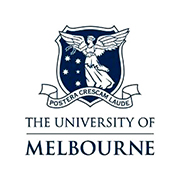
13
墨尔本大学
The University of Melbourne
OfferEasy收录了 1248 份Offer

18
悉尼大学
The University of Sydney
OfferEasy收录了 3226 份Offer
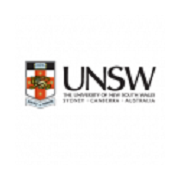
19
新南威尔士大学
The University of New South Wales
OfferEasy收录了 1650 份Offer
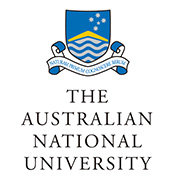
30
澳洲国立大学
Australian National University
OfferEasy收录了 541 份Offer

37
莫纳什大学
Monash University
OfferEasy收录了 1480 份Offer

40
昆士兰大学
The University of Queensland
OfferEasy收录了 1477 份Offer

77
西澳大学
The University of Western Australia
OfferEasy收录了 346 份Offer

82
阿德莱德大学
The University of Adelaide
OfferEasy收录了 336 份Offer
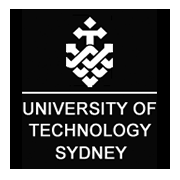
88
悉尼科技大学
University of Technology Sydney
OfferEasy收录了 229 份Offer
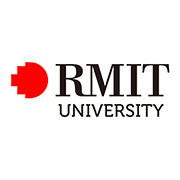
123
皇家墨尔本理工大学
The Royal Melbourne Institute of Technology
OfferEasy收录了 162 份Offer

133
麦考瑞大学
Macquarie University
OfferEasy收录了 100 份Offer
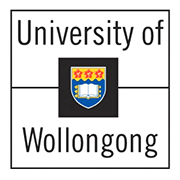
167
卧龙岗大学
University of Wollongong
OfferEasy收录了 82 份Offer

174
科廷大学
Curtin University
OfferEasy收录了 43 份Offer
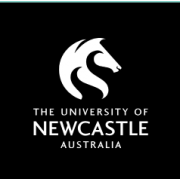
179
纽卡斯尔大学(澳洲)
Newcastle University
OfferEasy收录了 27 份Offer

197
迪肯大学
Deakin University
OfferEasy收录了 73 份Offer

213
昆士兰理工大学
Queensland University of Technology
OfferEasy收录了 68 份Offer

217
拉筹伯大学
Latrobe University
OfferEasy收录了 12 份Offer
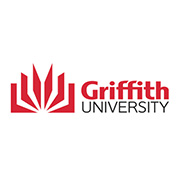
255
格里菲斯大学
Griffith University
OfferEasy收录了 42 份Offer
院校2022QS排行榜 查看全部
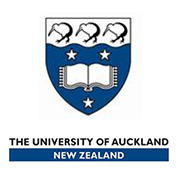
65
奥克兰大学
The University of Auckland
OfferEasy收录了 301 份Offer

214
奥塔哥大学
University of Otago
OfferEasy收录了 28 份Offer

235
怀卡托大学
The University of Waikato
OfferEasy收录了 54 份Offer

239
梅西大学
Massey University
OfferEasy收录了 55 份Offer

244
惠灵顿维多利亚大学
Victoria University of Wellington
OfferEasy收录了 58 份Offer

261
坎特伯雷大学
University of Canterbury
OfferEasy收录了 40 份Offer

371
林肯大学
Lincoln University
OfferEasy收录了 14 份Offer

412
奥克兰理工大学
Auckland University of Technology
OfferEasy收录了 53 份Offer

9999
坎特伯雷大学语言中心
OfferEasy收录了 0 份Offer

9999
东部理工学院
Eastern Institute of Technology
OfferEasy收录了 2 份Offer

9999
马努卡理工学院
Manukau Institute of Technology
OfferEasy收录了 0 份Offer
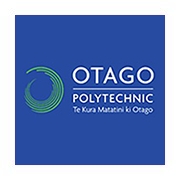
9999
奥塔哥理工学院
Otago Polytechnic
OfferEasy收录了 1 份Offer

9999
奥克兰理工大学国际学院(UP)
UP International College New Zealand
OfferEasy收录了 3 份Offer

9999
基督城理工学院
Christchurch Polytechnic Institute of Technology
OfferEasy收录了 1 份Offer

9999
林肯大学语言学院
lincoln language school
OfferEasy收录了 0 份Offer

9999
坎特伯雷大学国际学院(Navitas)
UC International College (Navitas)
OfferEasy收录了 1 份Offer

9999
惠灵顿维多利亚大学国际学院(UP)
UP International College New Zealand
OfferEasy收录了 3 份Offer

9999
奥塔哥大学语言中心
OfferEasy收录了 0 份Offer
院校2022QS排行榜 查看全部

8
新加坡国立大学
National University of Singapore
OfferEasy收录了 6 份Offer

15
南洋理工大学
Nanyang Technological University
OfferEasy收录了 7 份Offer

440
新加坡科技设计大学
Singapore University of Technology and Design
OfferEasy收录了 0 份Offer

585
新加坡管理大学
Singapore Management University
OfferEasy收录了 0 份Offer

9999
新加坡澳亚学院
Academies Australasia College
OfferEasy收录了 0 份Offer

9999
新加坡澳斯顿学院
Auston Institute of Management
OfferEasy收录了 0 份Offer

9999
新加坡爱信国际学院
Ascensia Academy
OfferEasy收录了 0 份Offer

9999
新加坡香阳环球厨师学院
At-Sunrice GlobalChef Academy
OfferEasy收录了 0 份Offer

9999
新加坡建筑管理学院
Building and Construction Authority
OfferEasy收录了 0 份Offer
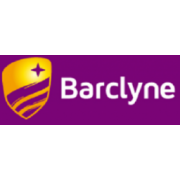
9999
新加坡博林国际学院
Barclyne College International
OfferEasy收录了 0 份Offer

9999
新加坡培根国际学院
Beacon International College
OfferEasy收录了 0 份Offer

9999
新加坡特许科技学院
Chartered Institute of Technology
OfferEasy收录了 0 份Offer

9999
新加坡博伟国际教育学院
Dimensions International College
OfferEasy收录了 0 份Offer

9999
新加坡东亚管理学院
East Asia Institute of Management
OfferEasy收录了 3 份Offer

9999
新加坡ERC学院
Singapore ERC Institute
OfferEasy收录了 0 份Offer

9999
新加坡辅仁预科学院
Furen International School
OfferEasy收录了 0 份Offer

9999
新加坡第一媒体设计学院
First Media Design School
OfferEasy收录了 0 份Offer

9999
新加坡财经管理学院
FTMSGlobal Academy
OfferEasy收录了 0 份Offer
院校2022QS排行榜 查看全部

2
帝国理工学院
Imperial College London
OfferEasy收录了 4 份Offer

3
牛津大学
University of Oxford
OfferEasy收录了 2 份Offer

5
剑桥大学
University of Cambridge
OfferEasy收录了 6 份Offer

9
伦敦大学学院
University College London
OfferEasy收录了 15 份Offer

27
爱丁堡大学
The University of Edinburgh
OfferEasy收录了 86 份Offer

34
曼彻斯特大学
The University of Manchester
OfferEasy收录了 241 份Offer

40
伦敦国王学院
King's College London
OfferEasy收录了 31 份Offer

50
伦敦政治经济学院
London School of Economics and Political Science
OfferEasy收录了 0 份Offer

54
布里斯托大学
University of Bristol
OfferEasy收录了 138 份Offer
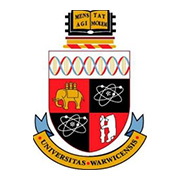
69
华威大学
University of Warwick
OfferEasy收录了 18 份Offer

78
格拉斯哥大学
University of Glasgow
OfferEasy收录了 451 份Offer

80
伯明翰大学
University of Birmingham
OfferEasy收录了 306 份Offer

80
南安普顿大学
University of Southampton
OfferEasy收录了 389 份Offer

82
利兹大学
University of Leeds
OfferEasy收录了 437 份Offer

89
杜伦大学
Durham University
OfferEasy收录了 177 份Offer

104
圣安德鲁斯大学
University of St Andrews
OfferEasy收录了 6 份Offer

105
谢菲尔德大学
The University of Sheffield
OfferEasy收录了 417 份Offer

108
诺丁汉大学
The University of Nottingham
OfferEasy收录了 310 份Offer
院校2022QS排行榜 查看全部

25
多伦多大学
University of Toronto
OfferEasy收录了 0 份Offer

29
麦吉尔大学
McGill University
OfferEasy收录了 2 份Offer
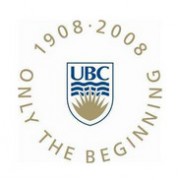
38
不列颠哥伦比亚大学
University of British Columbia
OfferEasy收录了 1 份Offer

96
阿尔伯塔大学
University of Alberta
OfferEasy收录了 0 份Offer

115
滑铁卢大学
University of Waterloo
OfferEasy收录了 0 份Offer
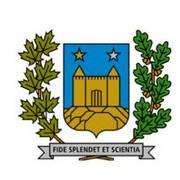
159
蒙特利尔大学
Université de Montréal
OfferEasy收录了 0 份Offer

172
西安大略大学
University of Western Ontario
OfferEasy收录了 0 份Offer
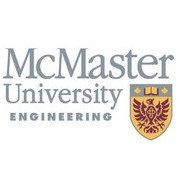
176
麦克马斯特大学
McMaster University
OfferEasy收录了 0 份Offer

189
渥太华大学
University of Ottawa
OfferEasy收录了 0 份Offer

193
皇后大学
Queen's University at Kingston (Queen's University)
OfferEasy收录了 0 份Offer

198
卡尔加里大学
University of Calgary
OfferEasy收录了 0 份Offer

275
达尔豪斯大学
Dalhousie University
OfferEasy收录了 0 份Offer

319
西蒙菲沙大学
Simon Fraser University
OfferEasy收录了 0 份Offer

340
萨省大学
University of Saskatchewan
OfferEasy收录了 0 份Offer
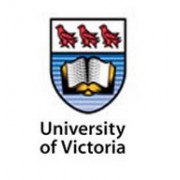
349
加拿大维多利亚大学
University of Victoria Canada
OfferEasy收录了 0 份Offer

362
加拿大约克大学
York University
OfferEasy收录了 0 份Offer

433
拉瓦尔大学
Universite Laval
OfferEasy收录了 0 份Offer

456
圭尔夫大学
University of Guelph
OfferEasy收录了 0 份Offer
院校2022QS排行榜 查看全部

1
麻省理工学院
Massachusetts Institute of Technology (MIT)
OfferEasy收录了 0 份Offer

4
哈佛大学
Harvard University
OfferEasy收录了 0 份Offer

5
斯坦福大学
Stanford University
OfferEasy收录了 0 份Offer

10
加州理工学院
California Institute of Technology (Caltech)
OfferEasy收录了 0 份Offer

11
宾夕法尼亚大学
University of Pennsylvania
OfferEasy收录了 0 份Offer

12
加州大学伯克利分校
University of California-Berkeley
OfferEasy收录了 0 份Offer

16
康奈尔大学
Cornell University
OfferEasy收录了 0 份Offer

21
芝加哥大学
The University of Chicago
OfferEasy收录了 0 份Offer

22
普林斯顿大学
Princeton University
OfferEasy收录了 0 份Offer

23
耶鲁大学
Yale University
OfferEasy收录了 0 份Offer

32
约翰霍普金斯大学
Johns Hopkins University (JHU)
OfferEasy收录了 0 份Offer
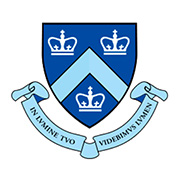
34
哥伦比亚大学
Columbia University in the City of New York
OfferEasy收录了 0 份Offer

42
加州大学洛杉矶分校
University of California-Los Angeles
OfferEasy收录了 0 份Offer

43
纽约大学
New York University
OfferEasy收录了 0 份Offer

44
密歇根大学安娜堡分校
University of Michigan-Ann Arbor
OfferEasy收录了 0 份Offer
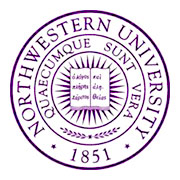
50
美国西北大学
Northwestern University
OfferEasy收录了 0 份Offer

58
卡内基梅隆大学
Carnegie Mellon University
OfferEasy收录了 0 份Offer

61
杜克大学
Duke University
OfferEasy收录了 0 份Offer
院校2022QS排行榜 查看全部

36
首尔大学
Seoul National University
OfferEasy收录了 0 份Offer

79
延世大学
Yonsei University
OfferEasy收录了 0 份Offer

156
汉阳大学
Hanyang University
OfferEasy收录了 0 份Offer

362
梨花女子大学
Ewha Womans University
OfferEasy收录了 0 份Offer

414
中央大学
Chung-Ang University
OfferEasy收录了 0 份Offer

445
韩国外国语大学
Hankuk University of Foreign Studies
OfferEasy收录了 0 份Offer

751
檀国大学
Dankook University
OfferEasy收录了 0 份Offer

751
全南大学
Chonnam National University
OfferEasy收录了 0 份Offer

751
忠南大学
Chungnam National University
OfferEasy收录了 0 份Offer

801
韩国岭南大学
Yeungnam University
OfferEasy收录了 0 份Offer

1001
国民大学
KOOKMIN UNIVERSITY
OfferEasy收录了 0 份Offer

1001
江原大学
Kangwon National University
OfferEasy收录了 0 份Offer
院校2022QS排行榜 查看全部

23
东京大学
The University of Tokyo
OfferEasy收录了 0 份Offer

36
京都大学
Kyoto University
OfferEasy收录了 0 份Offer

55
东京工业大学
Tokyo Institute of Technology
OfferEasy收录了 0 份Offer

75
大阪大学
Osaka University
OfferEasy收录了 0 份Offer

118
名古屋大学
Nagoya University
OfferEasy收录了 0 份Offer

137
九州大学
Kyushu University
OfferEasy收录了 0 份Offer

145
北海道大学
Hokkaido University
OfferEasy收录了 0 份Offer

201
庆应义塾大学
Keio University
OfferEasy收录了 0 份Offer

203
早稻田大学
Waseda University
OfferEasy收录了 0 份Offer

285
筑波大学
University of Tsukuba
OfferEasy收录了 0 份Offer

343
广岛大学
Hiroshima University
OfferEasy收录了 0 份Offer

381
东京医科齿科大学
Tokyo Medical and Dental University
OfferEasy收录了 0 份Offer

386
神户大学
Kobe Universit
OfferEasy收录了 0 份Offer

477
千叶大学
Chiba University
OfferEasy收录了 0 份Offer

487
横滨市立大学
Yokohama City University
OfferEasy收录了 0 份Offer

531
一桥大学
Hitotsubashi University
OfferEasy收录了 0 份Offer

531
长崎大学
Nagasaki University
OfferEasy收录了 0 份Offer

541
新泻大学
Niigata University
OfferEasy收录了 0 份Offer
院校2022QS排行榜 查看全部

17
香港大学
The University of Hong Kong
OfferEasy收录了 18 份Offer

36
香港中文大学
The Chinese University of Hong Kong
OfferEasy收录了 7 份Offer

47
香港科技大学
The Hong Kong University of Science and Technology
OfferEasy收录了 11 份Offer

57
香港理工大学
The Hong Kong Polytechnic University
OfferEasy收录了 21 份Offer

62
香港城市大学
City University of Hong Kong
OfferEasy收录了 32 份Offer

252
香港浸会大学
Hong Kong Baptist University
OfferEasy收录了 20 份Offer

711
香港岭南大学
Lingnan University,Hong Kong
OfferEasy收录了 11 份Offer

9999
香港教育大学
The Education University of Hong Kong
OfferEasy收录了 15 份Offer

--
香港珠海学院
Chu Hai College of Higher Education
OfferEasy收录了 2 份Offer

--
香港教育学院
OfferEasy收录了 0 份Offer

--
香港恒生大学
The Hang Seng University of Hong Kong
OfferEasy收录了 0 份Offer

--
香港都会大学(前称:香港公开大学)
Hong Kong Metropolitan University
OfferEasy收录了 9 份Offer
院校2022QS排行榜 查看全部

9
瑞士苏黎世联邦理工学院
Swiss Federal Institute of Technology Zurich
OfferEasy收录了 0 份Offer
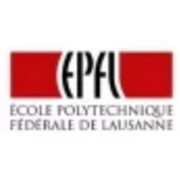
16
瑞士洛桑联邦理工学院
Swiss federal Institute of Technology in Lausanne
OfferEasy收录了 0 份Offer
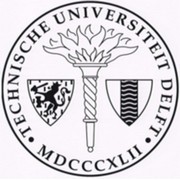
49
荷兰代尔夫特理工大学
Delft University of Technology
OfferEasy收录了 0 份Offer
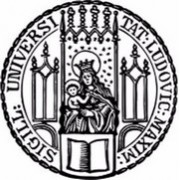
64
德国慕尼黑大学
Ludwig-Maximilians-UniversitätMünchen
OfferEasy收录了 0 份Offer

70
比利时鲁汶大学
University of Leuven
OfferEasy收录了 0 份Offer
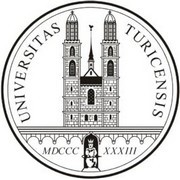
70
瑞士苏黎世大学
University of Zurich
OfferEasy收录了 0 份Offer

79
哥本哈根大学
University of Copenhagen
OfferEasy收录了 0 份Offer

87
瑞典隆德大学
Lund University
OfferEasy收录了 0 份Offer
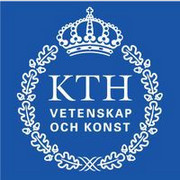
89
瑞典皇家理工学院
KTH Royal Institute of Technology
OfferEasy收录了 0 份Offer

99
丹麦技术大学
Technical University of Denmark
OfferEasy收录了 0 份Offer
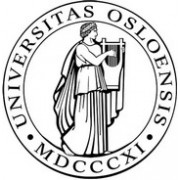
102
挪威奥斯陆大学
Universitetet i Oslo
OfferEasy收录了 0 份Offer

104
芬兰赫尔辛基大学
University of Helsinki
OfferEasy收录了 0 份Offer

105
瑞士日内瓦大学
Université de Genève
OfferEasy收录了 0 份Offer

105
荷兰乌得勒支大学
Utrecht University
OfferEasy收录了 0 份Offer

112
芬兰阿尔托大学
Aalto University
OfferEasy收录了 0 份Offer

124
瑞典乌普萨拉大学
Uppsala University
OfferEasy收录了 0 份Offer

127
德国柏林自由大学
Freie Universität Berlin
OfferEasy收录了 0 份Offer
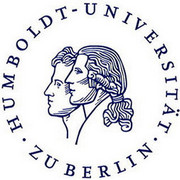
128
德国柏林洪堡大学
Humboldt-Universität zu Berlin
OfferEasy收录了 0 份Offer
院校2022QS排行榜 查看全部

14
北京大学
Peking University
OfferEasy收录了 0 份Offer

20
清华大学
Tsinghua University
OfferEasy收录了 0 份Offer

39
复旦大学
Fudan University
OfferEasy收录了 0 份Offer

45
上海交通大学
Shanghai Jiao Tong University
OfferEasy收录了 0 份Offer

133
中国科学技术大学
University of Science and Technology of China
OfferEasy收录了 0 份Offer

145
南京大学
Nanjing University
OfferEasy收录了 0 份Offer

192
同济大学
Tongji University
OfferEasy收录了 0 份Offer

194
武汉大学
Wuhan University
OfferEasy收录了 0 份Offer

252
哈尔滨工业大学
Harbin Institute of Technology
OfferEasy收录了 0 份Offer

269
天津大学
Tianjin University
OfferEasy收录了 0 份Offer

271
北京师范大学-香港浸会大学联合国际学院
UIC
OfferEasy收录了 2 份Offer

284
南方科技大学
Southern University of Science & Technology
OfferEasy收录了 0 份Offer
院校2022QS排行榜 查看全部

60
马来亚大学
University of Malaya
OfferEasy收录了 0 份Offer

138
马来西亚国民大学
Universiti Kebangsaan Malaysia
OfferEasy收录了 0 份Offer

146
马来西亚理科大学
University of Science Malaysia
OfferEasy收录了 8 份Offer

148
马来西亚博特拉大学
Universiti Putra Malaysia
OfferEasy收录了 4 份Offer

181
马来西亚理工大学
University of Technology Malaysia
OfferEasy收录了 0 份Offer

251
泰莱大学
Taylor's University
OfferEasy收录了 8 份Offer

265
思特雅大学
University College Sedaya International
OfferEasy收录了 2 份Offer
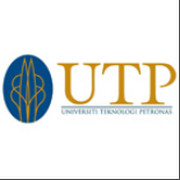
269
国油大学
Universiti Teknologi PETRONAS
OfferEasy收录了 0 份Offer

516
英迪国际大学
INTI International University and Colleges
OfferEasy收录了 0 份Offer

539
马来西亚双威大学
Sunway University
OfferEasy收录了 0 份Offer
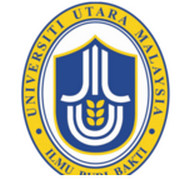
554
马来西亚北方大学
Universiti Utara Malaysia
OfferEasy收录了 0 份Offer

580
马来西亚管理科学大学
Management and Science University
OfferEasy收录了 0 份Offer

587
玛拉工艺大学
Universiti Teknologi Mara
OfferEasy收录了 0 份Offer

601
管理与科学大学
Management and Science University
OfferEasy收录了 0 份Offer

601
下威大学
Sunway University
OfferEasy收录了 0 份Offer

611
马来西亚亚太科技大学
Asia Pacific University of Technology &Innovation
OfferEasy收录了 0 份Offer

641
国家能源大学
Universiti Tenaga Nasional
OfferEasy收录了 0 份Offer

661
马来西亚国际伊斯兰大学
International Islamic University Malaysia (IIUM)
OfferEasy收录了 0 份Offer
院校2022QS排行榜 查看全部

215
朱拉隆功大学
Chulalongkorn University
OfferEasy收录了 0 份Offer

255
玛希隆大学
Mahidol University
OfferEasy收录了 0 份Offer

601
清迈大学
Chiang Mai University
OfferEasy收录了 0 份Offer

801
孔敬大学
Khon Kaen University
OfferEasy收录了 0 份Offer

801
泰国农业大学
Kasetsart University
OfferEasy收录了 0 份Offer

801
宋卡王子大学
Prince of Songkla University
OfferEasy收录了 0 份Offer
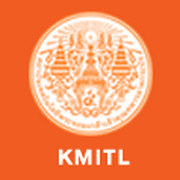
1001
先皇技术学院
King Mongkut’s Institute of Technology Ladkrabang
OfferEasy收录了 0 份Offer

9999
亚洲理工学院
Asian Institute of Technology
OfferEasy收录了 0 份Offer

9999
亚洲太平洋国际大学
Asia Pacific International University
OfferEasy收录了 0 份Offer

9999
易三仓大学
Assumption University
OfferEasy收录了 0 份Offer

9999
曼谷大学
Bangkok University
OfferEasy收录了 0 份Offer

9999
班颂德皇家大学
Bansomdej Chaopraya Rajabhat University
OfferEasy收录了 0 份Offer

9999
武里南皇家大学
Buriram Rajabhat University
OfferEasy收录了 0 份Offer

9999
泰国东方大学
Burapha University
OfferEasy收录了 0 份Offer

9999
商会大学
University of the Thai Chamber of Commerce
OfferEasy收录了 0 份Offer

9999
清迈皇家大学
Chiang Mai Rajabhat University
OfferEasy收录了 0 份Offer

9999
差亚鹏皇家大学
Chaiyaphum Rajabhat University
OfferEasy收录了 0 份Offer

9999
清莱皇家大学
Chiang Rai Rajabhat University
OfferEasy收录了 0 份Offer
院校2022QS排行榜 查看全部

9999
意大利莱切美术学院
Accademia di Belle Arti di Lecce
OfferEasy收录了 0 份Offer

9999
巴里美术学院
Accademia di belle arti DI BARI
OfferEasy收录了 0 份Offer

9999
米兰布雷拉美术学院
Accademia di belle arti di Brera
OfferEasy收录了 0 份Offer

9999
罗马美术学院
Accademia di belle arti di Roma
OfferEasy收录了 0 份Offer

9999
福贾美术学院
Accademia di belle arti DI FOGGIA
OfferEasy收录了 0 份Offer

9999
那不勒斯美术学院
Accademia di belle arti DI NAPOLI
OfferEasy收录了 0 份Offer
院校2022QS排行榜 查看全部

55
阿姆斯特丹大学
University of Amsterdam
OfferEasy收录了 0 份Offer
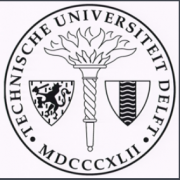
61
代尔夫特理工大学
Delft University of Technology
OfferEasy收录了 0 份Offer
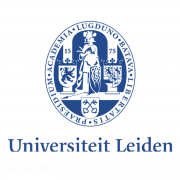
131
莱顿大学
Leiden University
OfferEasy收录了 0 份Offer
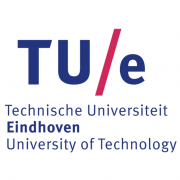
136
荷兰埃因霍芬理工大学
Eindhoven University of Technology
OfferEasy收录了 0 份Offer
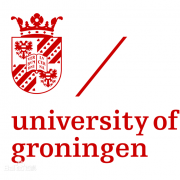
145
格罗宁根大学
University of Groningen
OfferEasy收录了 0 份Offer

158
鹿特丹伊拉斯谟大学
Erasmus University Rotterdam
OfferEasy收录了 0 份Offer

221
阿姆斯特丹自由大学
VU University Amsterdam
OfferEasy收录了 0 份Offer

230
马斯特里赫特大学
Maastricht University
OfferEasy收录了 0 份Offer

233
特温特大学
University of Twente
OfferEasy收录了 0 份Offer

272
拉德堡德大学
Radboud University Nijmegen
OfferEasy收录了 0 份Offer

347
蒂尔堡大学
Tilburg University
OfferEasy收录了 0 份Offer

9999
丰帝师大学
Fontys University
OfferEasy收录了 0 份Offer

9999
格罗宁根汉斯大学
Hanze Hogeschool Groningen University of Applied Sciences
OfferEasy收录了 0 份Offer

9999
乌特列支应用技术大学
HOGESCHOOL UTRECHT, UNIVERSITY OF APPLIED SCIENCES
OfferEasy收录了 0 份Offer

9999
汉恩大学
HAN University of Applied Sciences
OfferEasy收录了 0 份Offer

9999
阿姆斯特丹商学院
International Business School at AUAS
OfferEasy收录了 0 份Offer

9999
奈尔洛德商业大学
Nyenrode Business Universiteit
OfferEasy收录了 0 份Offer

9999
布雷达大学
NHTV Breda University of Applied Sciences
OfferEasy收录了 0 份Offer
院校2022QS排行榜 查看全部

87
都柏林圣三一大学
Trinity College Dublin
OfferEasy收录了 111 份Offer

126
爱尔兰都柏林大学
University College Dublin
OfferEasy收录了 151 份Offer

273
爱尔兰国立高威大学
National University of Ireland Galway
OfferEasy收录了 78 份Offer
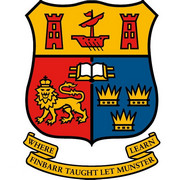
273
考克大学
University College Cork
OfferEasy收录了 108 份Offer

421
都柏林城市大学
Dublin City University
OfferEasy收录了 4 份Offer

421
利莫瑞克大学
University of Limerick
OfferEasy收录了 32 份Offer

801
梅努斯大学
National University of Ireland Maynooth
OfferEasy收录了 7 份Offer

851
都柏林理工大学
Technological University Dublin
OfferEasy收录了 1 份Offer

9999
唐道克理工学院
Dundalk Institute of Technology
OfferEasy收录了 2 份Offer

9999
沃特福德理工学院
Waterford Institute of Technology
OfferEasy收录了 0 份Offer

--
UniHaven College(OnCampus)
UniHaven College
OfferEasy收录了 0 份Offer

--
都柏林国际预科学院(DIFC)
Dublin International Foundation College
OfferEasy收录了 0 份Offer

--
都柏林大学国际学院(SG)
Dublin International Study Centre
OfferEasy收录了 0 份Offer

--
爱尔兰香农理工学院
Technological University of the Shannon
OfferEasy收录了 4 份Offer

--
努伊戈尔韦
OfferEasy收录了 0 份Offer

--
爱尔兰阿斯隆理工学院
Athlone Institute of Technology
OfferEasy收录了 2 份Offer

--
都柏林城市大学国际学院(DCU)
DCU International Academy
OfferEasy收录了 0 份Offer

--
爱尔兰都柏林大学语言中心
UCD Applied Language Centre
OfferEasy收录了 0 份Offer
院校2022QS排行榜 查看全部
245
澳门大学
University of Macau
OfferEasy收录了 2 份Offer

464
澳门科技大学
Macau University of Science and Technology
OfferEasy收录了 5 份Offer

581
澳门科学技术大学
Macau University of Science and Technology
OfferEasy收录了 0 份Offer

--
澳门城市大学
City University of Macau
OfferEasy收录了 0 份Offer

--
澳门理工大学
Macao Polytechnic University
OfferEasy收录了 0 份Offer
院校2022QS排行榜 查看全部
院校2022QS排行榜 查看全部
院校2022QS排行榜 查看全部
Offer Easy
为什么选择OfferEasy?
互联网留学平台,汇聚大牛导师的第三方独立顾问平台。
OfferEasy为你提供1对1的留学指导,让前人的智慧和经验帮助你少走弯路,让留学变得更加简单,留学服务价值更高。让留学变得更加简单,留学服务价值更高。
一站式留学申请
留学文书
博士定制化服务
出国签证
项目实训
企业实习
国外教授课题
义工类项目















用户口碑
4.9
1w+用户真实评论
OfferEasy用户对于平台产品和服务评价全程公开透明,以供参考。